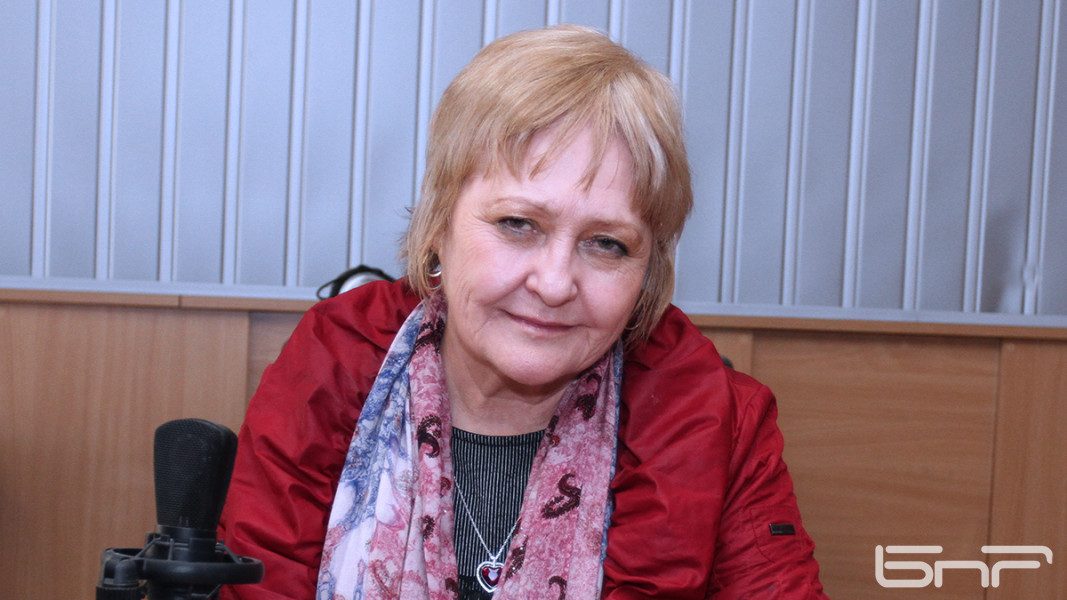Two in three Bulgarians are overweight. With regard to this tendency, Bulgaria is running ahead of European and world obesity trends, indicate the latest data of the World Health Organization on occasion of the World Obesity Day marked on March 4. More than 61% of Bulgarians are overweight. Obesity is a chronic disease associated with excessive fat accumulation that presents a risk to health. It affects negatively peoples’ health and reduces life expectancy. 13.6% of the Bulgarian children are overweight. Moreover, 17.1% of the boys aged 5 to 9 are overweight and 10.2% of the girls at this age are overweight.
The body mass index is the main indicator used to define overweight and obesity. Bulgarians have put on body weight over the past year, because many people stayed at home for a long time and did not exercise enough. The negative results are visible in people who work and study online. In the beginning of the lockdown, when contacts between people were minimized, we noticed that people were gaining weight. Children and adolescents were also putting on weight amidst a period of depression and anxiety. All these factors contribute to the increase of body weight, said public health nutritionist Professor Donka Baikova:
 “Some people found a way to shift to a healthier nutrition. Moreover, they increased their physical exercises, although they had to stay and work at home. Fortunately, the human body can quickly get rid of the kilograms gained over a very short period of time, because the fat cells need more time to remember an unhealthy diet. However, some Bulgarians left this problem for the post-Covid-19 period. However, the coronavirus pandemic is not likely to end soon and experts recommend that people do not delay the fight against excess weight and immediately adopt measures to lose weight. Overweight and obese people are at greater risk for severe Covid-19.”
“Some people found a way to shift to a healthier nutrition. Moreover, they increased their physical exercises, although they had to stay and work at home. Fortunately, the human body can quickly get rid of the kilograms gained over a very short period of time, because the fat cells need more time to remember an unhealthy diet. However, some Bulgarians left this problem for the post-Covid-19 period. However, the coronavirus pandemic is not likely to end soon and experts recommend that people do not delay the fight against excess weight and immediately adopt measures to lose weight. Overweight and obese people are at greater risk for severe Covid-19.”
 This is so, because fat is stored up around the organs of overweight people. Fat is wrapped around their heart and infiltrated into their liver. Their blood vessels get clogged with fat. The skeletal system cannot endure excess weight. Our optimal weigh is our height in centimeters minus 100, said Professor Baikova and called on the people who do not fall into this category to take immediate measures.
This is so, because fat is stored up around the organs of overweight people. Fat is wrapped around their heart and infiltrated into their liver. Their blood vessels get clogged with fat. The skeletal system cannot endure excess weight. Our optimal weigh is our height in centimeters minus 100, said Professor Baikova and called on the people who do not fall into this category to take immediate measures.
 “They must gradually shift towards a low fat nutrition and increase physical exercise. The healthy weekly menu includes three meat meals, two portions of fish and two meatless dishes, in which we can add daily products or an egg. When we do not consume meat, our menu must always include potatoes, rice, corn, cereals and beans. People should eat high-carb foods such as rye bread, oatflakes and linseed at breakfast. However, they should continue their physical exercise.”
“They must gradually shift towards a low fat nutrition and increase physical exercise. The healthy weekly menu includes three meat meals, two portions of fish and two meatless dishes, in which we can add daily products or an egg. When we do not consume meat, our menu must always include potatoes, rice, corn, cereals and beans. People should eat high-carb foods such as rye bread, oatflakes and linseed at breakfast. However, they should continue their physical exercise.”
English version: Kostadin Atanasov
Photos: Pixabay, archive, Ani Petrova
The prices of Easter goods are rising The Easter meal in the Balkan countries will be more expensive this year, BTA reports. Lamb in Serbia costs about 1,400 dinars (EUR 11.5) per kilogram in supermarkets. On Good Friday, fish..
Residents and visitors to Sofia will have the opportunity to learn more about Bulgarian scientists working in Antarctica and their important role in the exploration of the continent. The exhibition "Antarctic People - Caring for the Earth" by BNR..
Looking and feeling your best doesn’t have to come at a high price — especially in Bulgaria. The country has become a rising star in beauty tourism, offering top-tier salon services at prices that won’t break the bank. Whether you’re a local or a..
Digital nomadism, a lifestyle where people choose remote work so they can travel and live in different environments, is becoming a phenomenon on the way..

+359 2 9336 661
